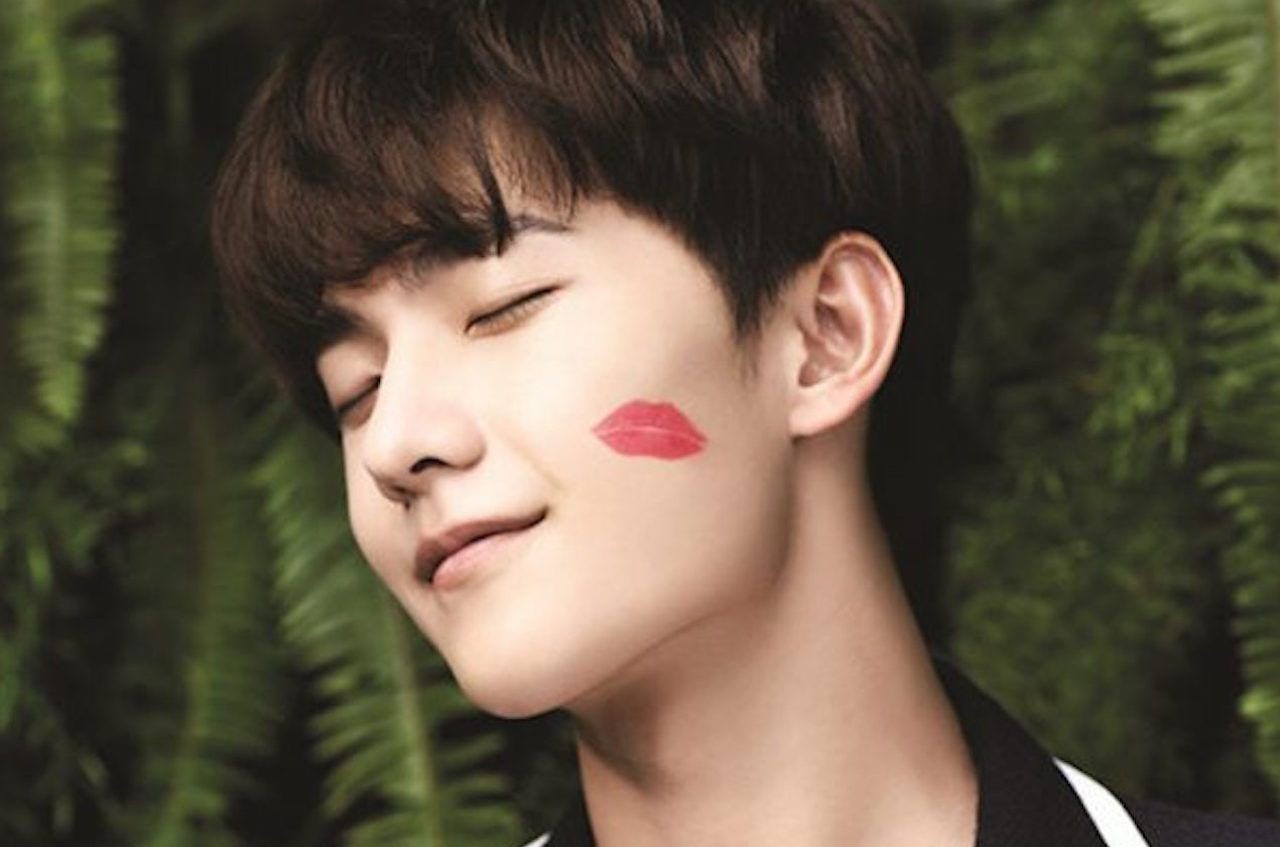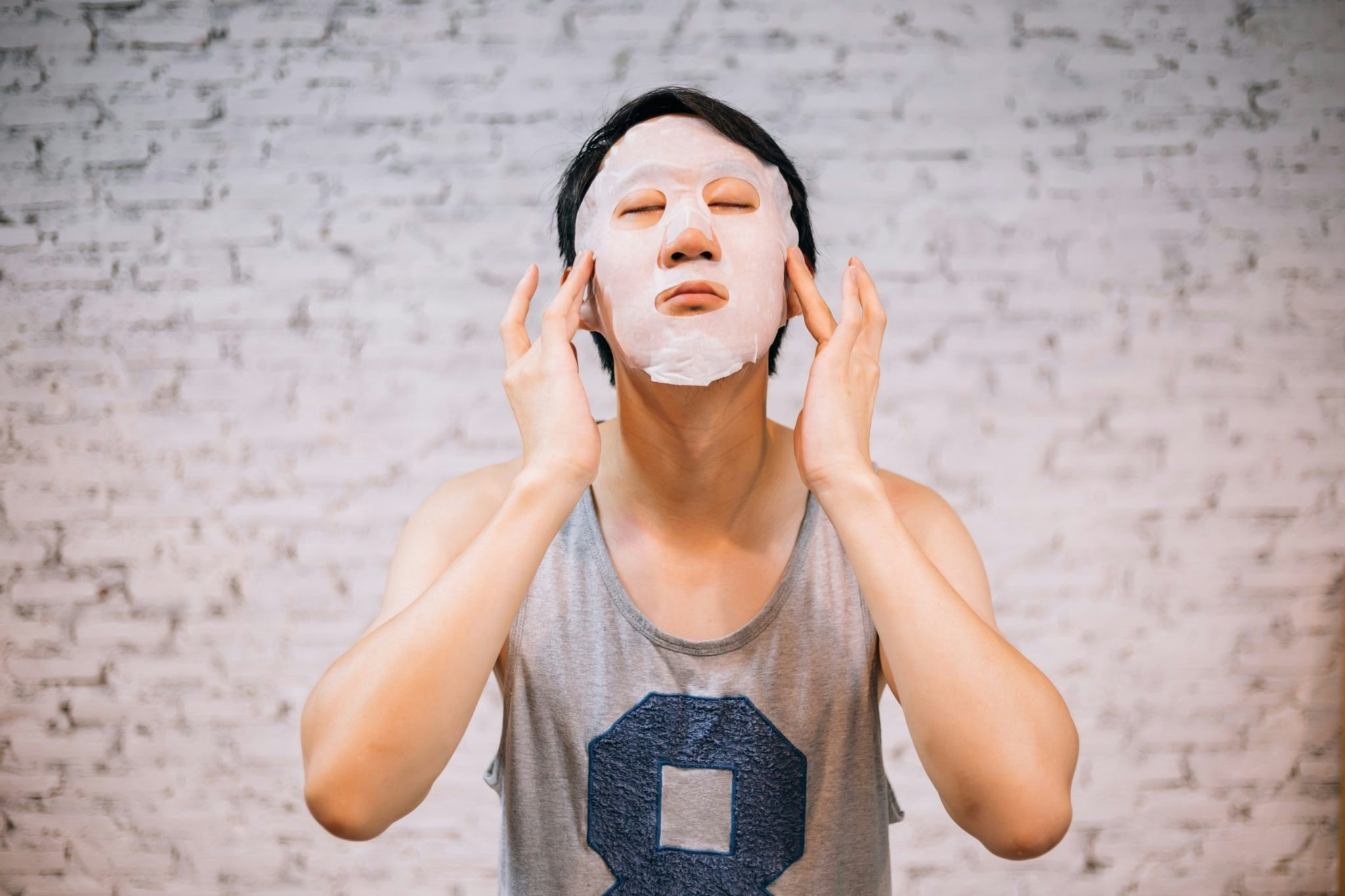According to Andre Hoffmann, president of the APAC division of beauty brand L’Occitane, the company experienced double-digit growth in China in 2017, with an 11% increase in net sales and an impressive 49% increase in sales on China’s popular e-commerce platform, Tmall. This was in large part, he says, “due to a highly effective celebrity campaign with Lu Han.”
The Chinese singer and actor, dubbed the ‘Chinese Justin Bieber’, is one of the foremost poster boys of China’s 'little fresh meat' ('小鲜肉') phenomenon—a term coined several years ago to describe a young generation of Chinese male idols who are known for embodying a softer masculinity, originated by their counterparts in Japan and South Korea and made popular by K- Pop, J-Pop, anime and manga.
Recognizable by their well-groomed, boyish appearance with delicate elfin features, these more effeminate Chinese male heartthrobs boast the largest social-media followings and have won the hearts and spending power of China’s female millennials. They're in demand as brand ambassadors and to front a whole raft of multimillion-dollar campaigns. Luxury brands have wasted no time in capitalizing on the trend and using it as one of the most effective strategies for peddling products to young consumers.
"Young male celebrities consistently deliver the highest social engagement for brands across categories in China ”
Joyce Ling, chief strategy officer at McCann Worldgroup China, says that these idols are wildly popular among a range of target audiences. “More mature female consumers see these 'little fresh meats' as the cute little brothers they never had, and the young adore them for their success and fashion sense,” she says.
The impact on brand visibility speaks for itself. “Our data has shown young male celebrities consistently deliver the highest social engagement for brands across categories in China,” says Liz Flora, Asia Pacific editor at research firm L2 Digital. “Out of the top 10 Weibo posts by engagement for watch and jewelry brands in the first half of 2018, seven featured a young male celebrity. Five of these featured Wang Yuan of the young Chinese boyband TFBoys. We’ve seen the same type of phenomenon across the beauty and consumer packaged goods categories as well.”
Flora says that the TFBoys are “hands-down the kings of the moment.” L2’s data reveals that Weibo posts mentioning TFBoys earned 28% of all engagement among luxury brand posts featuring a celebrity. Watchmaker Chopard’s announcement of TFBoy’s band member Wang Yuan as its brand ambassador was the most popular luxury brand Weibo post of the first half of the year, with 10.4 million interactions. The brand was able to crush its competitors on Weibo with 46% of all watch and jewelry brand engagement.
![Roy Wang or Wang Yuan, Karry Wang or Wang Junkai, and Jackson Yee or Yi Yangqianxi of Chinese boy group TFBoys at an unveiling ceremony in Shanghai, 2018 [Photo: AFP]](/_next/image?url=https%3A%2F%2Fcdn.sanity.io%2Fimages%2Ff8lauh0h%2Fproduction%2Fcc35e3c9dff5dfee4a7cb09009f92587afc8788f-1024x683.png%3Fq%3D95%26fit%3Dmax%26auto%3Dformat&w=3840&q=95)
The young men boost sales too. According to L2 Digital, L’Occitane’s 2017 launch of themed gift sets featuring Lu Han contributed to a 250% increase in quarterly online marketplace sales in China, while Chinese cosmetic brand Chando saw a Tmall sales spike from its TFBoys face mask set sold on Singles’ Day last year.
“There’s sort of a symbiotic relationship going on between these celebrities and their millions of fans,” says Flora. “The celebrities depend on their fans to generate sales of the products they’re endorsing, while the fans are spending due to the strong emotional connection they feel to the celebrities.”
Some say the rise in popularity for these young men is directly linked to the role of women within the context of China’s socio-economical shift, so much so that young women are using their power as consumers to change traditional stereotypes of male beauty.
"While 'little fresh meats' can drive huge traffic from those fans who are drawn by their idols, it is also risky once they [brands] change their spokesperson, or when these young consumers start liking someone else."
“52% of women in China now think their income is at parity with their partners,” says Philip Hwang, APAC strategy director for marketing agency SGK. “So whereas before, women might have been attracted to male celebrities playing a more traditional gender role, now they are at a point where they have the metaphorical strength and independence to seek someone who doesn’t have to support or protect them, but is conversely harmless and close to what they want —someone attentive, considerate, sensitive.”
However, despite the current cult of and the seemingly unstoppable power of these young men to influence consumer behavior, Hwang warns that there’s never “a guaranteed way for more visibility and sales” in any industry. Brands, as always, have to consider whether this style of celebrity is appropriate for their market and brand simply because it is a new phenomenon.
Similarly, Hwang says that without a proper marketing strategy, an endorsing celebrity in the end is “just a face”. He cites an example of Chinese cosmetics brand Perfect Diary, which used the young male Chinese singer Zhu Zhenting as a spokesperson to help it sell 24,000 lipsticks in just 60 seconds. “The real success behind the celebrity face is brilliantly executed strategy,” says Hwang. “The Perfect Diary campaign using Zhu Zhenting combined well-timed internet teasers; gamification of exclusive content; even embedding his birthdate digits in online posts, all to drive conversation and make the release almost an Easter-egg hunt for fans.”
This post originally appeared on Campaign Asia, our content partner.


